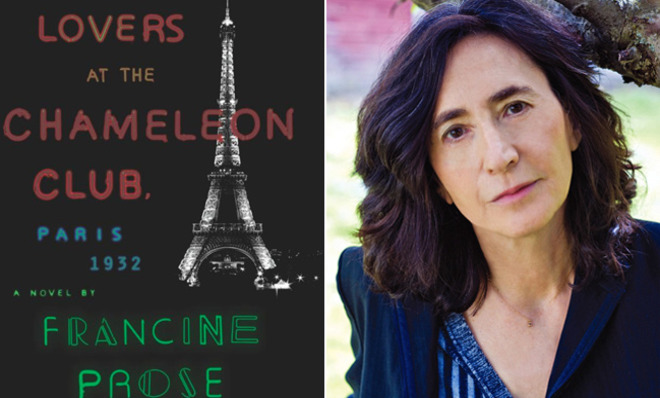Francine Prose's 6 favorite books
The author, critic, and former president of PEN American Center recommends works that guided her as she set out to write her new book

A free daily email with the biggest news stories of the day – and the best features from TheWeek.com
You are now subscribed
Your newsletter sign-up was successful
Le Divorce by Diane Johnson (Plume, $15). It's impossible to write a book set in Paris, during any era, without reading Johnson's marvelously incisive and hilarious take on French culture and on how we Americans try to understand it — and just as frequently get it all wrong.
Paris Stories by Mavis Gallant (NYRB Classics, $16). Gallant was one of the most elegant, original, and precise prose stylists of all time. Her Paris stories go as deeply as any fiction ever has into all the darkest and brightest areas of the human psyche — and the human heart.
Memoirs of Montparnasse by John Glassco (NYRB Classics, $16). Glassco moved to Paris in the 1920s, and his lightly fictionalized memoir captures the mood of the era. With its accounts of wild nights of partying with the famous and the infamous, it helps us imagine what it was like to be young and free in Paris at that time. It's like a much kinder and more generous version of Hemingway's A Moveable Feast.
The Week
Escape your echo chamber. Get the facts behind the news, plus analysis from multiple perspectives.

Sign up for The Week's Free Newsletters
From our morning news briefing to a weekly Good News Newsletter, get the best of The Week delivered directly to your inbox.
From our morning news briefing to a weekly Good News Newsletter, get the best of The Week delivered directly to your inbox.
Tales of Chekhov by Anton Chekhov (Ecco, $150). No other writer provides a better lesson in how to portray a character in depth, in how to get under the skin of someone else. All 13 volumes of Chekhov's stories are endlessly inspiring and helpful to today's working writers, especially when the characters we're writing about are very different from ourselves.
Into That Darkness: An Examination of Conscience by Gitta Sereny (Vintage, $18). One of the things I was dealing with in my novel is the nature of evil. How can an ordinary person do extraordinarily unspeakable things? This fascinating and beautifully written book-length interview with the Kommandant of the Treblinka extermination camp comes as close to answering those questions as anything ever will.
Hitler's Table Talk: 1941–1944 — His Secret Conversations (Enigma, $24). Martin Bormann (and others) wrote down everything Hitler said at meals for years. The result is shatteringly banal and almost impossible to read from start to finish, but when I realized that my novel would include a dinner party with Hitler, I knew that this book would be a useful resource.
— Francine Prose's new novel, Lovers at the Chameleon Club, Paris 1932, tells a story that spans two decades and various European milieus.
A free daily email with the biggest news stories of the day – and the best features from TheWeek.com
-
 At least 8 dead in California’s deadliest avalanche
At least 8 dead in California’s deadliest avalancheSpeed Read The avalanche near Lake Tahoe was the deadliest in modern California history and the worst in the US since 1981
-
 Political cartoons for February 19
Political cartoons for February 19Cartoons Thursday’s political cartoons include a suspicious package, a piece of the cake, and more
-
 The Gallivant: style and charm steps from Camber Sands
The Gallivant: style and charm steps from Camber SandsThe Week Recommends Nestled behind the dunes, this luxury hotel is a great place to hunker down and get cosy